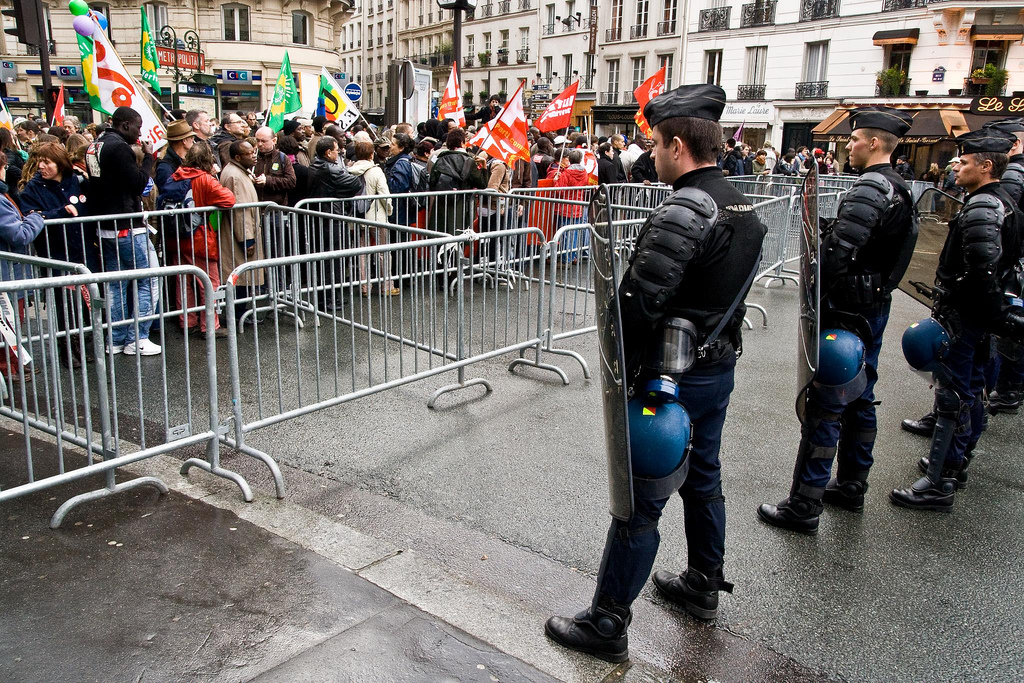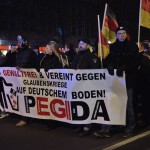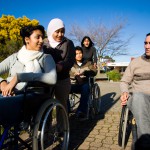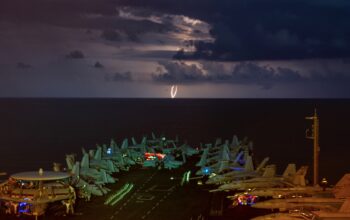The fall of the Berlin Wall in 1989 marked one of the greatest moments in history – people were reunited and peace had prevailed. Twenty-five years down the line, we still remember this memorable event because it tells us “if we can do this, we can do anything”.
However, fourteen guests of honour did not take part in the ceremonies for this year’s 25th commemoration. Fourteen white crosses representing the people who died in the attempt to cross the Berlin Wall were stolen by the Centre for Political Beauty – a German group of activists notorious for their controversial acts, such as the EBay auctioning of Angela Merkel in 2009 and an X-factor style audition for Syrian Refugees in 2014. Despite these being highly contentious undertakings, they are trying to make a point. We need to stop and open our eyes to what is happening around us.
In fact, the crosses were taken to the outer edges of Europe, to the borders of the EU, where refugees are being prevented to reach European territory. Similar to the events 25 years ago, people are being separated by force. As recorded by Amnesty International, the borders that are particularly affected by immigration are the land borders between Greece and Turkey, which used to be one of the main entry points for migrants entering the EU before mid-2012. In August 2012, Greece launched an operation to block its border, positioning police officers for border control, as well as setting up a 10.5 km long killing-machine-like fence. This blockade caused an 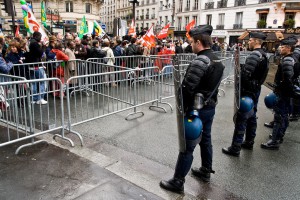 immigration flux in neighbouring Bulgaria, leading to authorities struggling to adequately attend to the needs of refugees. Instead of taking proper measures and appealing to other EU member states, Bulgaria increased their own border security.
immigration flux in neighbouring Bulgaria, leading to authorities struggling to adequately attend to the needs of refugees. Instead of taking proper measures and appealing to other EU member states, Bulgaria increased their own border security.
The countries that are affected the most by migrants from the MENA region (Middle East, North Africa) are Greece, Bulgaria, as well as Italy, Spain and Malta. Many of these countries are struggling to manage the migrant influx. According to the current immigration framework only one EU member state is responsible for the assessment of an asylum application. Unfortunately, the conditions in Greece and Italy are increasingly bad. This has led to the European Court of Human Rights (ECHR) enacting that member states should stop sending back asylum seekers to these countries. Southern EU countries have complained that the law does not allow for an equal distribution amongst member states as the majority of asylum seekers arrive on southern shores.
By stealing the white crosses, the Centre for Political Beauty tried to point out the hypocrisy of building borders while celebrating the fall of another. However, the fences are not the end of this. At the south-eastern border in Turkey and Bulgaria, immigrants are even pushed back unlawfully to the country they came from, mainly Syrian and Afghan refugees. According to international law, a country only has to grant asylum once the person is on its territory. However, by keeping migrants from reaching the borders by force, the authorities are taking away one of their basic human rights – free movement. Australia is a country well-known for keeping out refugees, and therefore widely discredited. Although their actions are deemed largely contentious, what the EU is doing is not that different. Trying to keep migrants from coming to Europe, the EU is even creating a buffer zone by supporting the migration control systems in neighbouring countries, such as Libya, Morocco, Turkey and Ukraine.
The problem with immigration, however, is not a lack of 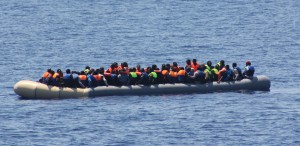 solidarity amongst European countries or that there are simply too many refugees for Europe to handle. Quite on the contrary, it is an attitude problem. Europe is afraid. Pope Francis recently appealed to the Europeans, saying Europe was “slowly losing its own soul” by no longer being “open to the transcendent dimension of life”. The notion of peace and unity that was so noticeable after the Berlin Wall came down seems to have faded away over the past years. People feel as though they are losing their national identity in the process of European convergence. But instead of looking for solutions, people are finding scapegoats for their identity crisis – the immigrants. Polls have shown that Europeans generally perceive the condition to be more severe than it actually is. Estimating the number of immigrants to be much higher than in reality can shape the political opinion and lead to misconception of the situation altogether.
solidarity amongst European countries or that there are simply too many refugees for Europe to handle. Quite on the contrary, it is an attitude problem. Europe is afraid. Pope Francis recently appealed to the Europeans, saying Europe was “slowly losing its own soul” by no longer being “open to the transcendent dimension of life”. The notion of peace and unity that was so noticeable after the Berlin Wall came down seems to have faded away over the past years. People feel as though they are losing their national identity in the process of European convergence. But instead of looking for solutions, people are finding scapegoats for their identity crisis – the immigrants. Polls have shown that Europeans generally perceive the condition to be more severe than it actually is. Estimating the number of immigrants to be much higher than in reality can shape the political opinion and lead to misconception of the situation altogether.
So really, the problem lies with the people of Europe, standing in the way of creating more effective laws. Pope Francis so rightly said “we cannot allow the Mediterranean to become a vast cemetery!” The White Crosses stolen from the 25th Berlin Wall commemoration should be a wake-up call. Personal frustrations with the EU should not become another person’s death sentence. It is time to look beyond the borders of Europe for a change of mind.
By Wiebke Arnold
Image credit:
Picture 1: phlippe leroyer, licensed under CC BY-NC-ND 2.0
Picture 2: Irish Defence Forces, licensed under CC BY 2.0
